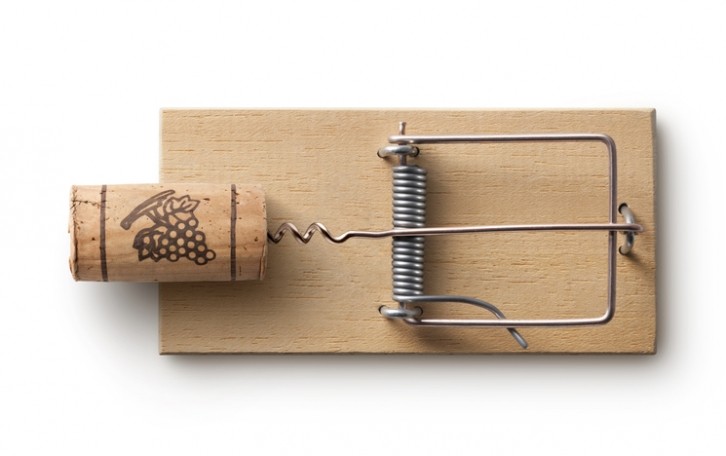How to spot fake alcohol

This week, Food Standards Scotland (FSS) issued an urgent warning after a series of seizures of counterfeit vodka in local convenience stores in Coatbridge and Glasgow, sold in 35cl bottles (half of the 70cl volume of standard bottles) and fraudulently labeled as Glen’s.
That warning has been extended across England, Wales and Northern Ireland via the Food Standards Authority (FSA).
Lab results from counterfeit vodka sampled in August 2024 confirmed the presence of the chemical isopropyl (isopropanol, IPA): an industrial solvent and toxic alcohol that can prove fatal in larger amounts (when ingested, the chemical is converted to acetone and so onset of symptoms may be immediate or delayed for up to 30 hours post ingestion).
Authorities are still trying to work out the extent of the problem.
So how can consumers recognize fake alcohol, and how can retailers know what they’re buying for their stores is the real thing?
FSS has issued guidelines that will help consumers recognize counterfeit Glen’s vodka – or any other suspicious products.
1) The price is too good to be true
Counterfeit alcohol hopes to entice consumers in with a cheaper price.
A very low price ‘should set off an alarm bell immediately’, says FSS.
2) Taste and smell
If alcohol tastes or smells bad, that’s a sign there’s a problem.
Vodka should look completely clear, with no particles or sediment visible in the bottle.
In the case of counterfeit Glen’s vodka, the smell may be a key giveaway.
The product ‘may have a strange smell and taste differently to genuine vodka, and therefore should not be consumed’, says FSS.
No small problem
It is thought a quarter of the world’s alcoholic drinks are illicit.
Toxic alcohol kills around 1,000 people a year in India: a recent incident of such 'bootleg alcohol' being a case in South India in June that cost 56 lives.
In the UK, it is estimated fake wine, beer and spirits cost £200m in lost sales. In the EU, that’s put at €3bn.
Source: 'What's your poison: The true cost of fake alcohol' from the UK's Fraud Advisory Panel.
3) Labeling and packaging
Sometimes counterfeit products are actually quite obvious: with poor labels and spelling errors.
But sometimes the differences are a lot more subtle.
For example, every bottle of genuine Glen’s vodka has a laser etched lotcode applied to the bottle between the rear label and the base of the bottle (pictured right).
Extra vigilance for wine and vodka
Vodka and wine are the most commonly counterfeited alcoholic drinks, according to FSS.
4) Broken seal
Check the cap is sealed properly; and if the seal is broken, don’t drink or buy the product.
Even if the product was genuine to start with, it could have been tampered with.
5) Work with the brand, authorities and reputable suppliers
The Loch Lomond Group, which owns Glen’s Vodka, has been working closely with FSS to try and mitigate the risk to consumers. It has provided information to the FSS – and the public – as to how to spot a genuine bottle.
For example, each bottle has three identifiers on the base which will not vary in their position or detail.
Reporting any suspicious products can help authorities track down the origin and extent of the problem.
Report suspicious products immediately
Most countries have an anonymous hotline for suspected counterfeit goods.
In Scotland, information on the manufacture or sale of counterfeit alcohol can be given via the Scottish Food Crime Hotline (0800 028 7926) in partnership with Crimestoppers. The hotline is free and anonymous.
A spokesperson for the Loch Lomond Group said: “Our priority is the health and safety of the public which includes our many thousands of loyal Glen’s customers. We are working hard to support the excellent efforts of Food Standards Scotland and the other authorities involved to address the matter urgently.
"We would urge any customers who suspect they may have a counterfeit product to contact their local council’s environmental health service or the Food Standards Scotland Food Crime and Incidents Unit as quickly as possible.”
For retailers, working with reputable suppliers is one way to help ensure only genuine, safe products end up on shelves.








